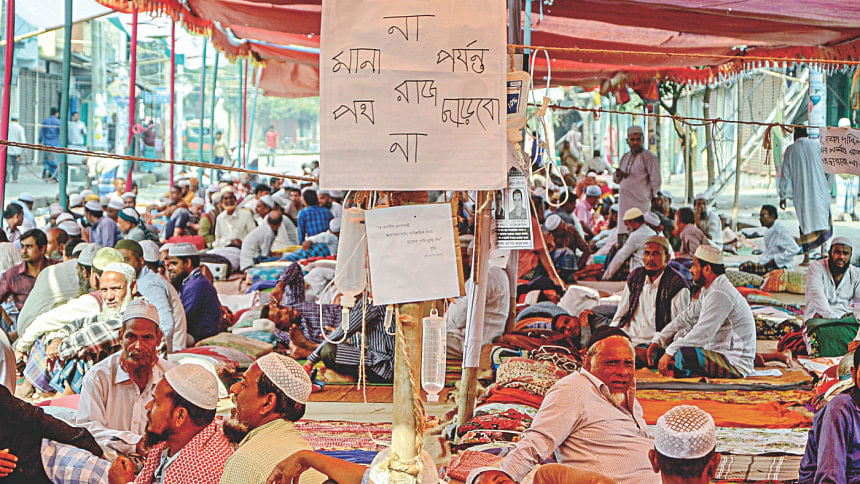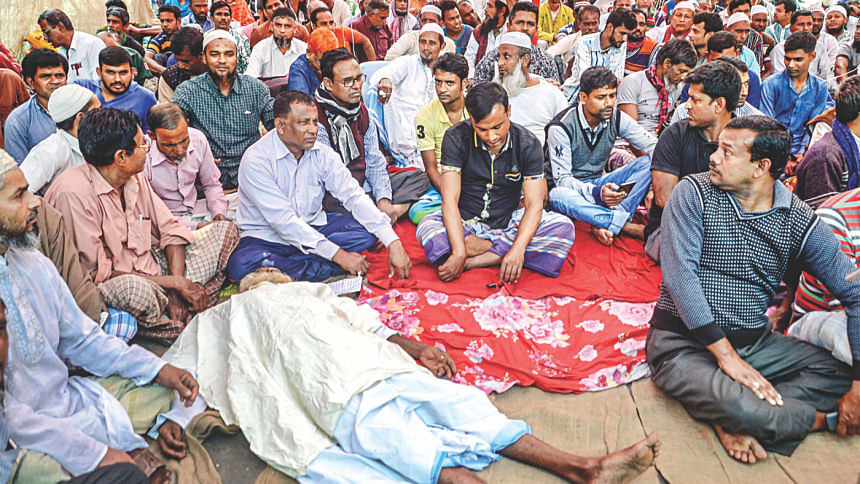Hunger Strike: Over 100 jute mill workers fall sick

At least 100 jute mill workers, observing an indefinite hunger strike for four days, were admitted to different hospitals and clinics in Khulna yesterday.
The workers have been protesting since Tuesday to press home their 11-point demand, said Shahana Sarmin, president of Platinum Jute Mill Employees Union.
Along with the hospitalised ones, around 31,000 workers of Jashore-Khulna industrial belt were demonstrating work abstention under the banner of CBA and non-CBA Sangram Parishad to press home their 11-point demand, she said.

Their demands include payment of regular wages, cancellation of public-private ownership, necessary fund for jute sector, insurance for families of deceased workers, provident fund and gratuity facility for retired workers and regularisation of temporary workers, she added.
Sailendranath Biswas, resident medical officer of Khulna Medical College Hospital (KMCH), said workers who were admitted to KMCH hospital suffered from acute dehydration.
“If workers remain starved for longer period of time, they may face heart attacks and even get killed,” he added.
Contacted, Boniz Uddin Miah, liaison officer of Bangladesh Jute Mills Corporation, said, “The government mistakenly passed the wage board. No institution that is recurring loss gets wage board.”
Asked why he did not visit the protesting workers and try to get them off the hunger strike, he said, “I do what I am ordered to do.”
BJMC Khulna informed the situation to the high ups and tried to mediate the issue, he said.
Meanwhile, the death of Abdur Sattar, a jute mill worker who was participating in the hunger strike and died at KMCH on Thursday, fueled up the protest.
Workers vowed to go on an even stronger protest following the death of Abdur Sattar, said Shahana Sarmin.
The authorities promised to pay Abdur Sattar’s dues within a month after he died, she added.
Khalilur Rahman Sumon, former president of Platinum Jute mill Employees Union, told The Daily Star that Abdur Sattar was not the lone victim.
“At least 20 jute mill workers died while demonstrating hunger strike for their rights in last 10 years,” he said, adding that the adamant workers would not leave the streets this time until the authorities fix the issues.
The Jashore-Khulna industrial belt, producing 86.39 metric tonnes of jute products every day, produced nothing in the last four days as the workers protesters remained on work abstention.

 For all latest news, follow The Daily Star's Google News channel.
For all latest news, follow The Daily Star's Google News channel. 



Comments